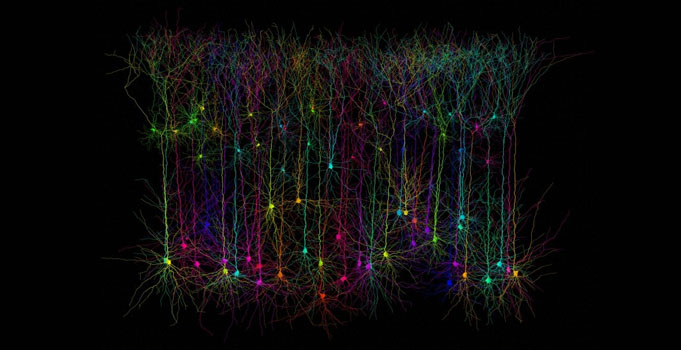ADHD
-

University Counseling Center offers student groups and workshops
The University Counseling Center offers groups and workshops for undergraduate, graduate and professional students that offer support and feedback from other participants, as well as by the facilitators, providing a powerful supportive and affirming space for students to discuss challenges and build connections. Read MoreFeb 23, 2023
-

Headband device suitable for use at home with young ADHD patients
Vanderbilt biomedical engineering professor has developed a prototype headband to measure brain activity that could have widespread application in studying and ultimately treating ADHD and other neurological disorders. The device is lightweight, portable, and inexpensive to construct. Prototype components cost less than $250, compared to costs exceeding $10,000 for commercial systems. Audrey Bowden, associate professor... Read MoreNov 16, 2021
-

Headband device suitable for use at home with young ADHD patients
Vanderbilt biomedical engineering professor has developed a prototype headband to measure brain activity that could have widespread application in studying and ultimately treating ADHD and other neurological disorders. The device is lightweight, portable, and inexpensive to construct. Prototype components cost less than $250, compared to costs exceeding $10,000 for commercial systems. Audrey Bowden, associate professor... Read MoreNov 16, 2021
-

Vanderbilt Kennedy Center presents: ‘Down Syndrome and ADHD’ Oct. 25
The Vanderbilt Kennedy Center will welcome Anna Esbensen, assistant professor of pediatrics at Cincinnati Children's Hospital, as its first speaker for the 2021-22 Kennedy Center Lectures on Development and Developmental Disabilities. Esbensen will present her virtual lecture, “Down Syndrome and ADHD,” on Monday, Oct. 25, from 4:10 to 5:10 p.m. CT. Read MoreOct 13, 2021
-

Students share their experiences with academic coaching, ADHD workshops, recovery support, more offered by Center for Student Wellbeing
Vanderbilt students share testimonials regarding their experiences with Vanderbilt’s Center for Student Wellbeing. Read MoreApr 19, 2021
-

Defective transporter linked to autism
A first-of-its-kind mouse model may help reveal mechanistic underpinnings for the altered behaviors of autism spectrum disorder. Read MoreJul 24, 2019
-

White House assembles top minds in neuroscience and learning for workshop
Vanderbilt's Laurie Cutting was one of a select group of experts in neuroscience, cognitive science, developmental psychology and other disciplines invited to take part in a White House Office of Science and Technology Policy workshop. Read MoreFeb 3, 2015
-

‘Darting’ mice may hold clues to ADHD, autism and bipolar disorder
The transgenic mouse, into which was inserted a rare human genetic variation in the dopamine transporter, could lead to improvements in the diagnosis and treatment of these all-too-common brain disorders. Read MoreOct 23, 2014
-

U.S. Senate hearing explores ADHD treatment concerns
William Cooper, M.D., MPH, Cornelius Vanderbilt Professor of Pediatrics and Health Policy, testified Tuesday before the U.S. Senate Health, Education, Labor and Pensions (HELP) committee regarding psychotropic medications and treatments for Attention Deficit Hyperactivity Disorder (ADHD). Read MoreFeb 27, 2014
-

Neurotransmitter’s role in bone balance
Removal of the neurotransmitter norepinephrine from the space outside cells plays an important role in the regulation of bone remodeling. Read MoreNov 7, 2013
-

Transporter linked to autism risk
Vanderbilt University investigators for the first time have linked a non-inherited, de novo mutation in the dopamine transporter to autism spectrum disorder (ASD). Read MoreSep 19, 2013
-

Antipsychotic drug use in children for mood/behavior disorders increases type 2 diabetes risk
Prescribing “atypical” antipsychotic medications to children and young adults with behavioral problems or mood disorders may put them at unnecessary risk for type 2 diabetes, a Vanderbilt University Medical Center study shows. Read MoreAug 22, 2013
-

New clue to ADHD
A rare genetic change adds support to the idea that altered dopamine signaling is a key risk factor for ADHD. Read MoreMay 15, 2012
-

Minds wide open: Neuroscience at Vanderbilt
Vanderbilt University has emerged as one of the nation’s leading academic centers in neuroscience. Read MoreApr 6, 2012
-

Study finds no heart risk with ADHD drugs
Attention deficit hyperactivity disorder (ADHD) medications do not increase the risk for heart disease or heart attack in children and young adults, according to a Vanderbilt study of 1.2 million patients taking drugs including Ritalin, Adderall, Concerta and Strattera between 1998 and 2005. Read MoreNov 3, 2011
-

Vanderbilt study finds no heart risk in ADHD medications
Attention Deficit Hyperactivity Disorder (ADHD) medications do not increase the risk for heart disease or heart attack in children and young adults, according to a Vanderbilt study of 1.2 million patients taking drugs including Ritalin, Adderall, Concerta and Strattera between 1998 and 2005. Read MoreNov 2, 2011
-

New insight into impulse control
How the brain is wired to control impulsive behavior differs significantly from what psychologists have thought, new research finds. Read MoreAug 30, 2011